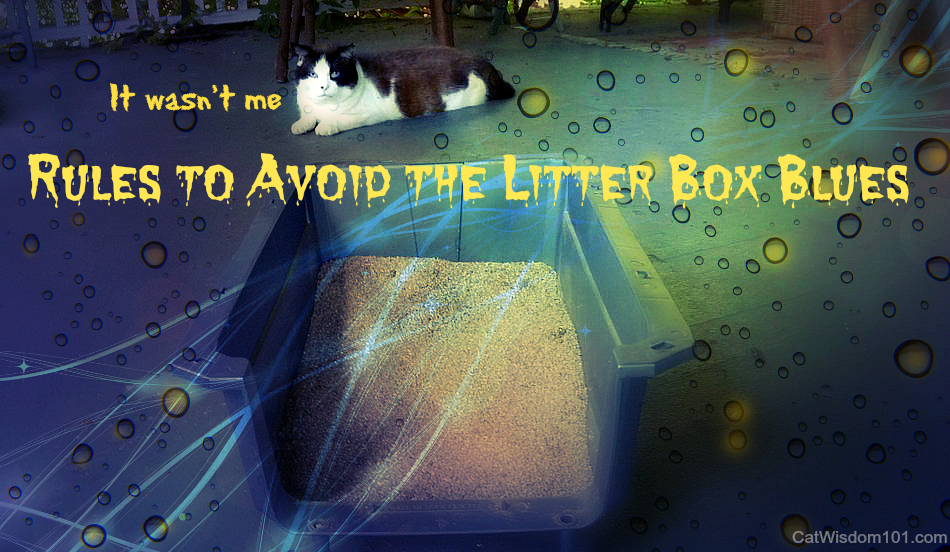We’re taking a break this week from Vet 101 Q & A when we answer reader’s questions about their cats. Vets need to develop a special skill set because their patients don’t speak our language. I posed some probing questions to veterinarian Letrisa Miller who sees only feline patients.
Mystery lovers, read on!
Dr. Letrisa Miller DVM
1) LMW: As an experienced vet who has seen it all, was there ever a perplexing medical situation with odd hard to diagnose symptoms and what was the outcome?
LM: Goodness, there have been many of those! I have been known to other veterinarians as a “zebra magnet”, meaning that I see a lot of weird stuff. I think the hardest to diagnose cases always end up being my favorites.
One that comes to mind is a cat that was slowly losing weight, yet had normal laboratory values. His appetite seemed normal, and other than having a few days every month or two where he just didn’t seem to be himself at home and occasional blood in his stool, there didn’t seem to be anything wrong. He came in weekly for weight checks and physical exams, but despite antibiotics and treatment for diarrhea his weight just continued to creep down slowly. He wasn’t hyperthyroid. He wasn’t diabetic (Yet, but that’s a different story.). He didn’t have kidney disease. He didn’t have pancreatic or liver disease. What the heck was going on?
Finally his laboratory values started to change, but only in one place-his total protein was going down. He also started to have some loose stools, sometimes with a little blood on the outside. Ultrasound and X-rays didn’t show anything amiss in his abdomen. Was this a protein losing enteropathy? Was his weight loss due to protein loss into his digestive tract? His weight was getting to a critical level and his hair was falling out in big patches. On a fecal exam, I was astonished to see what looked like a Histoplasma capsulatum organism. I had seen this fungus as a cause of pneumonia. Dogs get this fungus rarely as an infection in the intestines, but cats don’t get histoplasma infection in their GI tract!
I finally decided that we absolutely had to have an answer before he simply melted away to nothing. I talked to his owner and we decided to take him to surgery to look into his abdomen and take biopsies. I took samples and submitted them with a note to look for Histoplasma based on that tiny little microorganism I saw under my microscope.
The pathologist called me when he got the samples and asked me if I knew that cats don’t get intestinal histoplasmosis. Was I sure that I wanted the special stains? I said yes, but this is a really weird case and I would really like the test. I bit my nails for the next day watching my patient recover from surgery and waiting for the pathologist report. The next day I got an excited call from the pathologist. He said “Wow! I thought you were crazy and that staining for Histoplasma was a waste of my time, but you were right!” I was so lucky to have seen that tiny little dot under the microscope!
We started him on treatment immediately and he eventually made a full recovery and lived many more years, thankfully. That was a tough one! Interestingly enough he also taught me a lesson about allergies that I still use very often today. While he was hospitalized for treatment his hair started regrowing and the sneezing that his “mom” had been complaining about went away except when she came to visit. As soon as she picked him up his eyes started to water and he started sneezing like crazy. Was he allergic to his owner? We started asking a lot of questions: Do you wear perfume? No. Do you use any powders or skin lotions? No. Fabric softener? No. What do you use for laundry detergent? A regular laundry detergent with scent. Maybe this could be the problem? We used a hypoallergenic laundry detergent with no dyes or scents.
Lucky for us, this was the answer. He was not allergic to his mom, he was allergic to her laundry detergent! She changed detergent and the sneezing and watery eyes stopped almost immediately. So I learned that cats can be sensitive to the same allergens as people and may even have more severe allergic signs than us.
2) LMW: Have you found any miraculous recoveries or those not be explained scientifically?
LM:The most miraculous recovery I have seen was a cat that had severe peritonitis. She was a little black cat that had infection that had spread through her entire body. She was so ill that she couldn’t even keep her body temperature up to normal. She had a low body temperature and her calcium levels were so low that she was having muscle tremors. She was in danger of seizures because her blood sugar was to low to maintain normal brain function. She was very close to death. All the books said that this cat could not live, but she seemed to want to try.
We stabilized her calcium and blood sugar as best we could by giving her supplements while we brought her body temperature back up to normal and started her on antibiotics. We had to give her as much calcium as I would expect to give to a Great Dane!
We then took her to emergency surgery where we cleaned out her abdomen that was filled with pus. We washed and wiped and wiped and washed and removed the source of her infection-a piece of her uterus that had not been removed when she was spayed the year before. We rinsed her out with warm saline solution and antibiotics like her organs were in a washing machine.
Once we had removed all that we could of the pus and infected tissue, we closed her up and started intensive nursing.
She had 24 hour watches for signs of electrolyte problems (potassium and calcium) as well as IV fluids and antibiotics. She had a lot of treatments to keep her electrolytes normal and her glucose up to normal. We had to turn her over hourly because she was too weak to move herself and we didn’t want her to get bed sores. She was unable to get up to use a litter box, so we changed her bedding whenever she urinated or defecated. She was incredibly weak, but seemed to really want to live.
Unbelievably two days after surgery she suddenly lifted her head and started eating after not moving on her own for four days. She was such a tough customer that she was on her way home ready to start playing only four days after that! Cats are so amazing!
3) LMW:What is the funniest case your ever seen?
Oh dear, I’m not sure that one is suitable for mixed company! Can we talk about cat masturbation???
4) Are cats more or less complicated to treat than dogs?
I would say that they are just different. Cats often come to the veterinarian at a much later stage in diseases because they are so good at hiding illness, which can make treatment more challenging. Their secrecy about illness also makes it more difficult to diagnose problems. Feline medicine requires very strong skills of observation and an ability to take a lot of very small clues and put them together into a big picture.
I sometimes think of practicing cat medicine as being like a medical Sherlock Holmes. You have to find all of the facts that are there and that are hidden to untrained people, put those facts into an order that gives you an answer, then convince your clients that you aren’t a looney. This is particularly the case when the clients you are talking with didn’t realize that their cat was sick. Dogs, on the other hand, like to talk about their aches, pains and illnesses, so they just hand you most of the answers. Personally, I like having to work a bit harder to find the answers. It keeps me thinking.
Dr. Letrisa Miller practices veterinary medicine on cats only at her clinic in Connecticut.
Please include Vet 101 in the subject line.





7 Comments
Texas, a cat in New York
I guess we shouldn’t be that harsh on vets :-/
Purrs
catfromhell
What a great post! I throughly enjoyed it! I’ve always thought being a ver would be like being a detective and Letrisa sure sounds like one! I miss the clinic we took our cats to in the city. They specialized in cats too and both the vets were teaching Drs at the university to and the stories they cold tell when you got them going!
Cheers
Nellie’s Mom
Skeeter and Izzy
We always learn something new,useful,fun or just entertaining most every day here. Luvs to the Doc…Skeeter and Izzy >^oo^<
CATachresis
Like the others, I always learn something new when I visit your blog. That was fascinating!!
meowmeowmans
That was great! I always like visiting your blog, Layla, because I always feel like I learn something new. 🙂
Brian
Great info as always, and I learned something…again! Thanks!
Kathryn
Such great, great info. It has been a long time since I heard of histoplasmosis. My mother was a lab technician before she became a nurse. Once, she accidentally swallowed some histoplamosis spores. She always worried that one day, they’d be the end of her, but they weren’t.
Cats truly have nine lives.
I had a cat for 20 years. Emma Peel. She was quite ill the first year with pneumonitis. The vets never gave us enough medicine. Finally, went to a suburban vet who gave her a shot and at least a week of medicine, maybe two. And that did the trick. After several trips to inner city vets, (no shot and only a couple of days of meds) she was finally better. And she never got sick again. Lost, hurt by a raccoon, falling out of the third floor, stolen by a neighbor, yes. But 20 years. Of love.